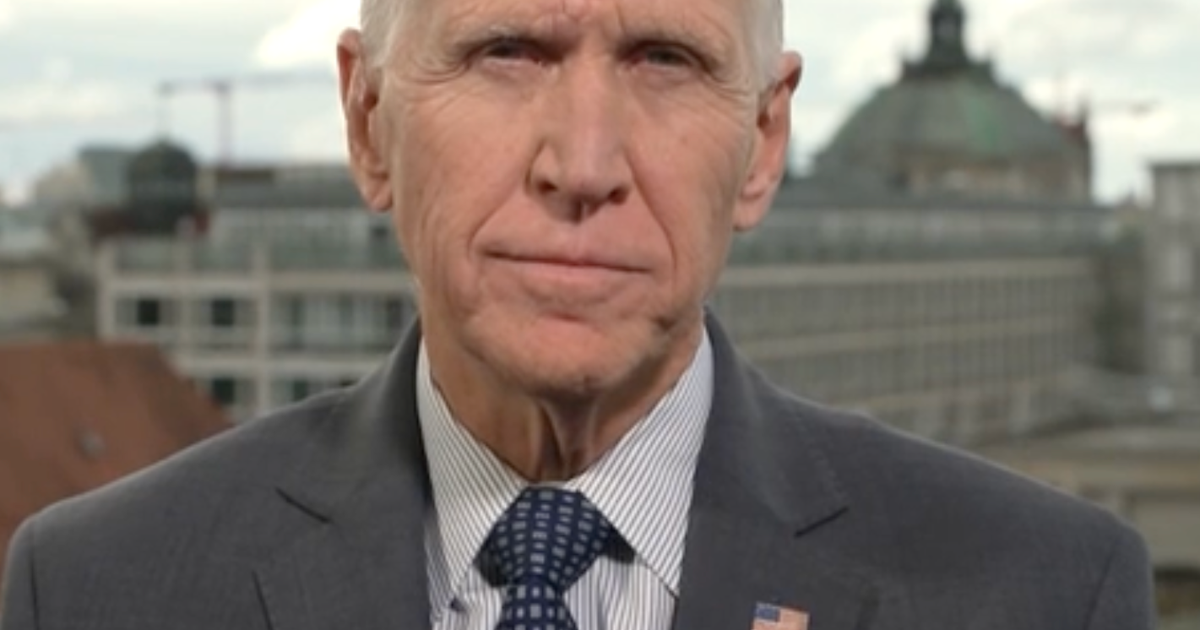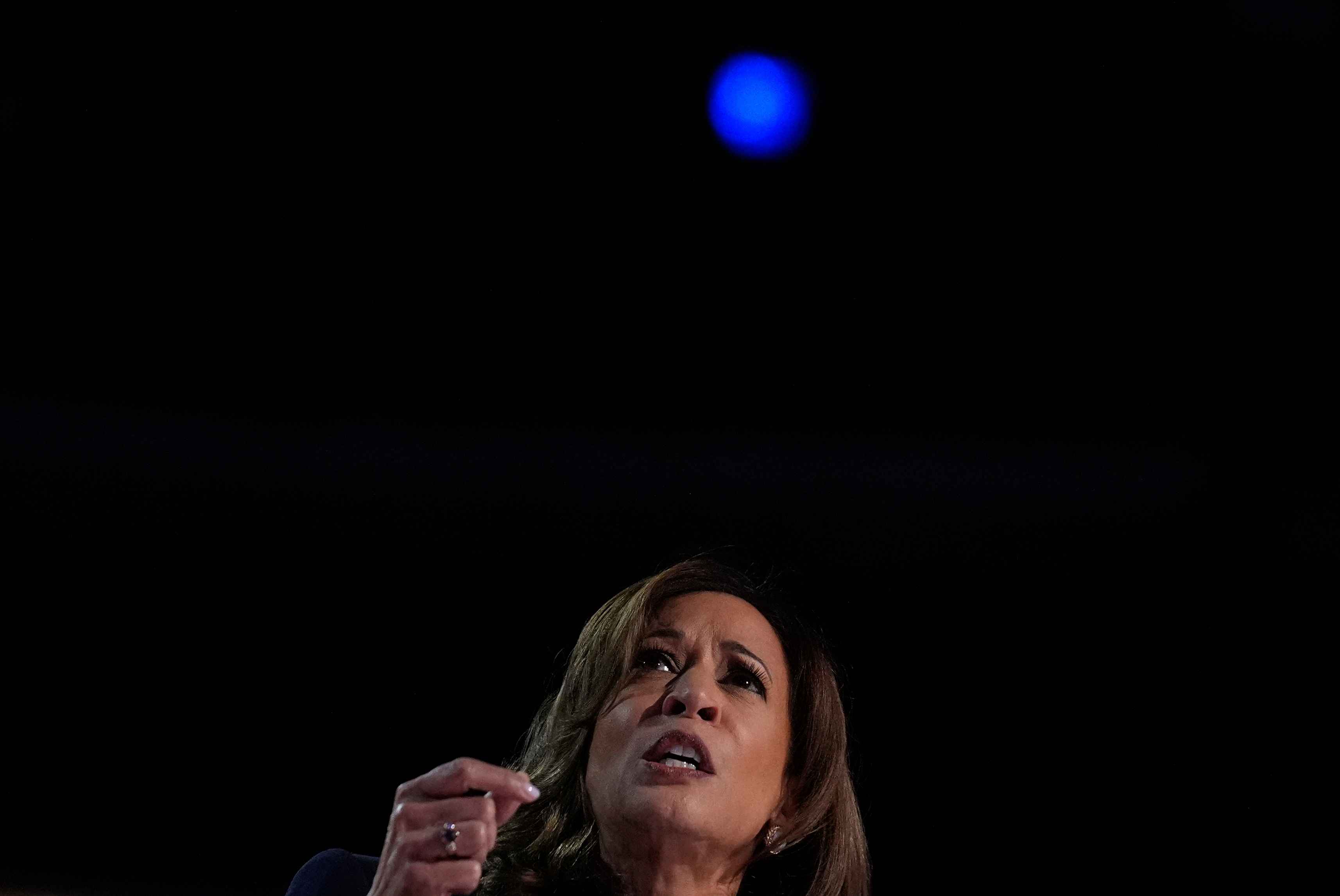Transcript: Tom Steyer on "Face the Nation," February 16, 2020
The following is a transcript of an interview with Tom Steyer that aired Sunday, February 16, 2020, on "Face the Nation."
MARGARET BRENNAN: Welcome back to FACE THE NATION. We're joined now by businessman and Democratic presidential candidate Tom Steyer, who is also in Las Vegas this morning. Good morning to you.
TOM STEYER: How are you doing, MARGARET?
MARGARET BRENNAN: Very well. I want to know how you're doing out there in Nevada. What will constitute success for you in that caucus?
STEYER: Look, I want to come in first or second. I've spent more time in Nevada than any other candidate. We have a great team on the ground here. I've gone out of my way to try and make sure that I see as many people face to face. And I believe we're putting together the kind of coalition in Nevada and in South Carolina that a Democrat is going to have to put together to win in November of 2020.
MARGARET BRENNAN: Nevada is a caucus state. Do you have confidence that you won't see a repeat of what happened in Iowa?
STEYER: Well, yesterday was the first day of early caucusing, MARGARET. And almost 12,000 people showed up. I think that it seems in good shape and we're confident that it's going to work here.
MARGARET BRENNAN: All right. I want to ask you, you indicated you're also focused on what happens next at the end of the month in South Carolina. You've been investing a tremendous amount of resources with ad dollars, with- with your time, with your campaign there. Why are you so focused on South Carolina? Do you see that as sort of the final test of your campaign?
STEYER: Well, let me say this, I am really focused on Nevada and South Carolina, MARGARET--
MARGARET BRENNAN: Sure--
STEYER: I think these are two--
MARGARET BRENNAN: But you've got the largest state operation of any candidate out in South Carolina, and I think your wife just moved there. You seem to be all in.
STEYER: Look, we are really serious about South Carolina. We are really serious about Nevada. And I want to make a point. Both of these states are diverse states. Both of these states reflect the kind of diversity that is America and that is the Democratic Party. And I think whoever is going to be the candidate has got to be able to show that he or she can pull together that diverse big tent that is the Democratic Party. And I think that's what we're trying to do here in Nevada. And I know that's what we're trying to do in South Carolina. To go- I was- I think I'm the last person, other than Michael Bloomberg, to get into this race. And I've still spent more time in Nevada than any other candidate and I've spent more time in South Carolina than any other candidate. I really think it's about grassroots. I'm a grassroots person. I built one of the biggest grassroots organizations in the United States, next-gen America. And I really believe in people being on the ground, the candidate being on the ground and seeing people face to face.
MARGARET BRENNAN: You have said because you were a hedge fund manager, that it makes you uniquely qualified, your experience to have a positive economic impact as president. The Federal Reserve chair testified this week that labor force participation, basically, you know, the share of Americans who work is low, is happening because- and in a negative place, because of the opioid crisis and problems with the education system. Is that how you diagnose the problem?
STEYER: Well, let me say this, Mr. Trump is a terrible economic president. He had very short term fixes--
MARGARET BRENNAN: This was his Federal Reserve chairman.
STEYER: I understand that. I'm going to address the Federal Reserve chairman's statements. But this has to do with Mr. Trump. He's running on the economy, but he's really running on a Mar-a-Lago economy where he's given big benefits to rich people and big corporations in the short run. What the Federal Reserve chairman is talking about in terms of opioids and education is how you actually develop long term prosperity and justice. And that is by investing in young people through education, specifically including universal pre-kindergarten, and by dealing with issues of health around the country, including the opioid crisis, including mental health. What Mr. Trump is doing is a very superficial short term juice to the economy through his pals at the Mar-a-Lago Country Club and other rich people. And he's avoiding the actual long term prosperity of Americans that is done by investing in the American people, by making us productive over time. And that means education, health care for every American, a living wage. The wages of Americans--
MARGARET BRENNAN: Right.
STEYER: --are outrageously low. It's a completely different way of thinking, MARGARET.
MARGARET BRENNAN: But when you talk about trying to even the playing field with reparations, something that you've said you support. How do you repair it? Do you say that the divide is about education or are you talking about financial restitution, writing checks?
STEYER: Well, what I've said, MARGARET is this, and you're right, I am the only candidate running for president who will say that he or she is for reparations. But what I've also said is this: the way to figure out the correct solution in this case is I would have a formal commission on race the first day- starting the first day of my presidency to retell the story of the more than 400 years that African-Americans have been here in America, to tell the story not just of legalized injustice and cruelty, but also of the contributions that the African-American community have made--
MARGARET BRENNAN: So you don't --
STEYER: --to the building of America--
MARGARET BRENNAN: --have a specific mechanism yet?
STEYER: Well, correct.
MARGARET BRENNAN: OK.
STEYER: The- what I'm saying is this: in order to come up with solutions, you have to go through together and tell the story, because out of the narrative comes the policy changes.
MARGARET BRENNAN: OK.
STEYER: One thing I have said- one thing I have said, MARGARET, is that I would put 125 billion dollars into the historically black colleges and universities, which have lost 42 percent of their federal funding over the last decade--
MARGARET BRENNAN: OK.
STEYER: --and which have done a magnificent job over more than a century of being a lifeline for black kids to go to the- to go to colleges and universities when the mainline schools are closed to them.
MARGARET BRENNAN: All right.
STEYER: That's just an example. But the real idea is to come up with a solution together--
MARGARET BRENNAN: Right.
STEYER: --not to mandate one from the top.
MARGARET BRENNAN: Understood. Thank you, Mr. Steyer, for your time. We'll be right back with our political panel. And they're on their way in as we speak.



